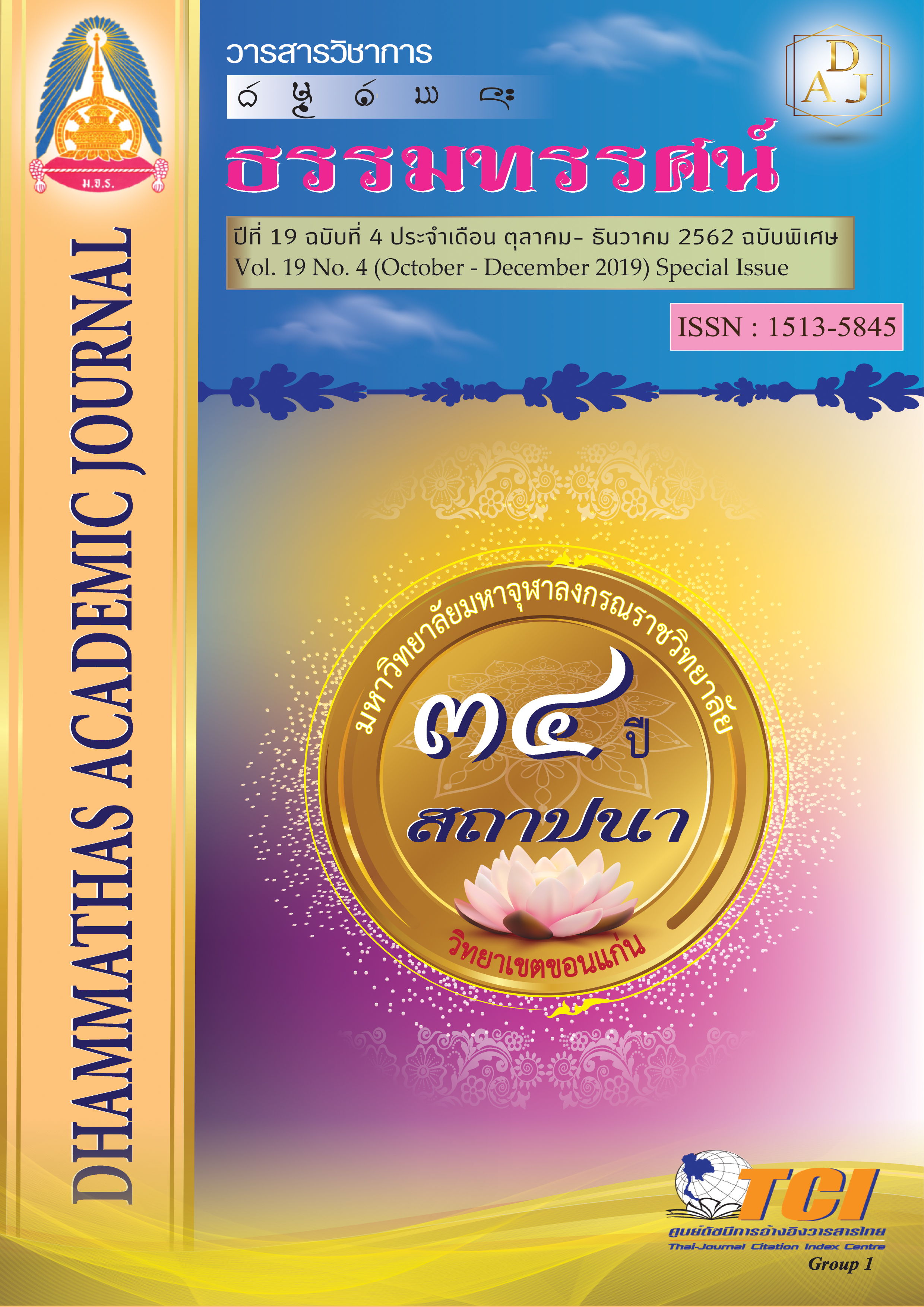Emotional Intelligence Development Process for Mahamakut Buddhist University Kalasin Buddhist Collage Based on the Four Foundations of Mindfulness
Main Article Content
Abstract
This research aims to: 1) study the principles and theories of emotional intelligence of Mahamakut Buddhist University Kalasin college students; 2) to study the development of emotional intelligence based on Buddhist principles, 4 to develop Mahamakut Buddhist University Kalasin college education; 3) to propose the development process. emotional intelligence according to the Buddhist principle, it is integrated into the four disciplines of Kalasin college students using the method of integrated research method is quantitative research. The research instruments were 169 persons. Quantitative data were analyzed by frequency, percentage, mean, standard deviation and descriptive analysis with content analysis. This research aims to: 1) study the principles and theories of emotional intelligence of Mahamakut Buddhist University Kalasin college students; 2) to study the development of emotional intelligence based on Buddhist principles, 4 to develop Mahamakut Buddhist University Kalasin college education; 3) to propose the development process. emotional intelligence according to the Buddhist principle, it is integrated into the four disciplines of Kalasin college students using the method of integrated research method is quantitative research. The research instruments were 169 persons. Quantitative data were analyzed by frequency, percentage, mean, standard deviation and descriptive analysis with content analysis.
The research findings were as follows:
1. The principles and theories of emotional intelligence of Kalasin college students in 5 aspects: 1) self-awareness 2) self-control 3) self-motivation4) understanding of others 5) social skills.
2. The emotional intelligence development process based on Buddhist principle Integrating with the fourth mindset of Kalasin college students emotional intelligence development consists of 5 components: 1) Self-awareness; 2) Self-control; 3) Self-motivation; 4) Understanding others; 5) Social skills the process design consists of 4 steps: 1) to study the theories of emotional intelligence; 2) to develop the process; 3) to monitor; 4) to improve the process. The process of developing emotional intelligence for Kalasin college students through the practice of the 4 sts is; 1) the introduction consists of the principles, the objectives and the context of the collage; 2) the emotional intelligence and emotional intelligence 4: supported by emotional intelligence and emotional intelligence development, 4 emotional intelligence measurement the development and the factors that affect the emotional intelligence of the students; 3) the implementation of the process; 4) the conditions for implementing the process.
3. The emotional development process according to the Buddhist principle, it is based on the principle of four attainments of students of Kalasin collage; 1) Ganapasipasana; 2) Vedus Nusasasana; 3) Jittananpasana; 4) Dharmanapasna Integration with the development of emotional intelligence in five aspects: 1) self-awareness.in consciousness, in consciousness, in consciousness; 2) Self-management. mindfulness in the body, mindfulness, forgiveness, and optimism by mindfulness of their own minds; 3) self-motivation and self-motivation. mindfulness in the mind develops the mind by changing the way negative thinking is positive. encourage self to keep the mind stable; 4) the feeling and understanding of others. mindfulness emotions to other people, pay attention to the expression of others; 5) the social skills. To have self-determination Interact and communicate with each other in society by initiating friendship and goodwill and respect the discipline of self and society.

